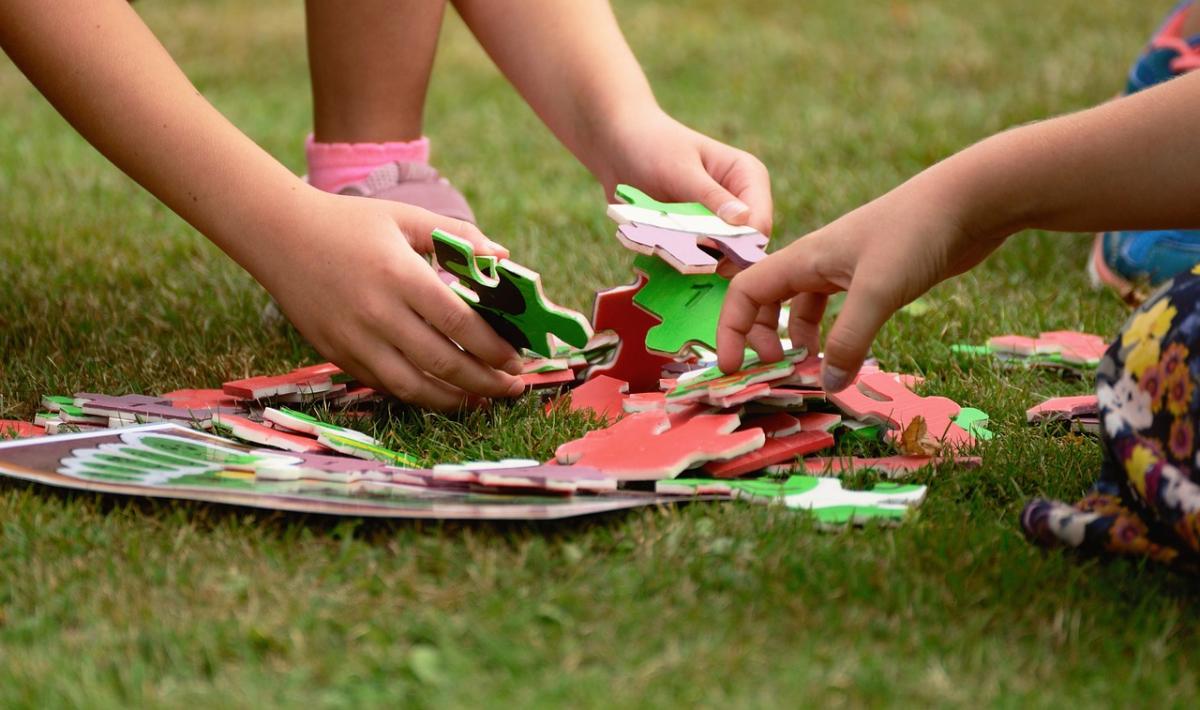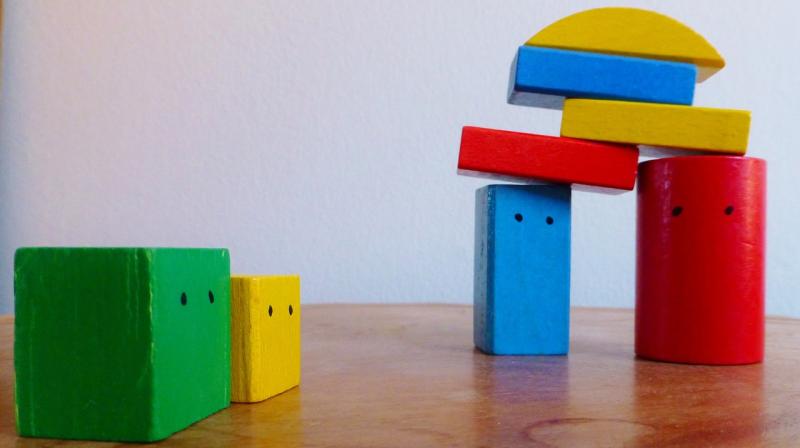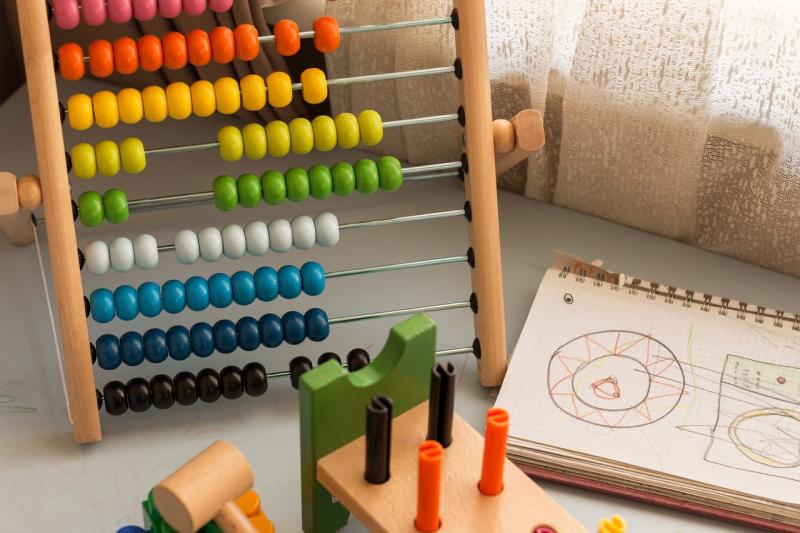Play is often seen as just a fun activity for children, but it holds significant importance in their development. Educational toys play a crucial role in leveraging playtime for learning and fostering cognitive and social skills in children. These toys are specifically designed to engage children in activities that promote problem-solving, critical thinking, creativity, and more.
One of the key benefits of educational toys is that they encourage hands-on learning. By manipulating objects, children gain a better understanding of cause and effect relationships, improve their motor skills, and enhance their hand-eye coordination. For example, building blocks not only provide the opportunity to construct various structures but also teach concepts like balance, stability, and spatial awareness.
Furthermore, educational toys are effective tools for developing cognitive abilities. Puzzles, brain teasers, and memory games stimulate children's brains, helping them improve their memory retention, cognitive flexibility, and problem-solving skills. These toys promote logical thinking and encourage children to approach problems from different angles, fostering a growth mindset and resilience in the face of challenges.
Lastly, educational toys contribute to the development of social skills. Board games, role-playing sets, and interactive toys encourage children to engage in cooperative play, take turns, communicate effectively, and develop empathy. Through these activities, children learn how to negotiate, collaborate, and interact with their peers, preparing them for future social interactions and building essential interpersonal skills.
Unlocking Success: Exploring the Influence of Educational Toys
The use of educational toys as a learning tool has long been a topic of interest and debate. In recent years, numerous studies have shed light on the positive impact that these toys can have on a child's cognitive development and academic performance. Educational toys go beyond traditional playtime activities, aiming to engage children in interactive and stimulating learning experiences.
One key advantage of educational toys is their ability to foster problem-solving and critical thinking skills. Unlike regular toys, educational toys often come with challenges that require children to actively problem solve or think creatively to achieve specific goals. This process not only enhances their cognitive abilities but also encourages persistence and resilience when faced with difficulties. By engaging in such activities, children have the opportunity to develop their problem-solving skills from an early age, empowering them to approach academic challenges with confidence later in life.
Moreover, educational toys can play a pivotal role in bridging the gap between theoretical knowledge and practical application. Many of these toys are designed to introduce and reinforce various concepts taught in schools, such as math, science, and language skills. By providing hands-on experiences, children can develop a deeper understanding of these concepts in a fun and engaging manner. Such a dynamic learning environment not only makes learning more enjoyable for children but also helps them retain information more effectively.
Lastly, educational toys can have a positive impact on a child's social and emotional development. Many of these toys encourage cooperative play and social interaction, fostering important skills such as communication, empathy, and teamwork. Through shared play experiences, children can develop their social and emotional intelligence, which is crucial for building healthy relationships and navigating various social settings throughout their lives.
A Journey of Discovery: The Educational Toy Revolution
The world of education has undergone a remarkable transformation over the years, thanks to the advent of educational toys. These innovative tools have revolutionized the way children learn and have made education a more engaging and interactive experience. Educational toys are specially designed to stimulate a child's imagination, promote critical thinking skills, and encourage hands-on learning. Encompassing a wide range of subjects and concepts, these toys have become indispensable in shaping the minds of young learners.
The impact of educational toys on learning cannot be overstated. Unlike traditional teaching methods that rely heavily on rote memorization, educational toys foster a deeper understanding of concepts by encouraging children to explore, experiment, and discover at their own pace. They cater to various learning styles and intelligences, ensuring that every child can find a toy that best suits their individual needs and preferences. By incorporating elements of fun and entertainment, these toys make learning an enjoyable and rewarding experience, ultimately leading to improved academic performance and increased motivation to learn.
Moreover, educational toys have the power to ignite curiosity and stimulate a child's natural inclination towards exploration. From science kits that enable children to conduct exciting experiments to puzzles that develop problem-solving skills, these toys help nurture a love for learning and a thirst for knowledge. By providing hands-on experiences and interactive challenges, educational toys encourage children to actively participate in their own education, fostering a sense of independence and self-confidence. Through this process of discovery and exploration, children develop essential skills such as critical thinking, creativity, and decision-making, which are vital for success in the modern world.
From Fun to Flourish: Unveiling Educational Toys' Learning Impact
Educational toys play a crucial role in a child's development. These toys are specifically designed to promote engagement, learning, and problem-solving skills in children, making the learning process enjoyable and effective. The impact of educational toys on a child's cognitive, social, and emotional development is truly remarkable.
One of the key benefits of educational toys is their ability to stimulate a child's curiosity and creativity. These toys encourage exploration, experimentation, and critical thinking, allowing children to develop problem-solving and decision-making skills from an early age. Whether it's building blocks, puzzles, or interactive learning devices, these toys offer hands-on experiences that promote logical reasoning and logical thinking.
In addition to enhancing cognitive skills, educational toys also play a vital role in fostering social and emotional development. Many educational toys are designed for cooperative play, encouraging children to work together, communicate, and negotiate. By engaging in such play, children learn essential skills like sharing, empathy, and teamwork, which are crucial for their future social interactions.



